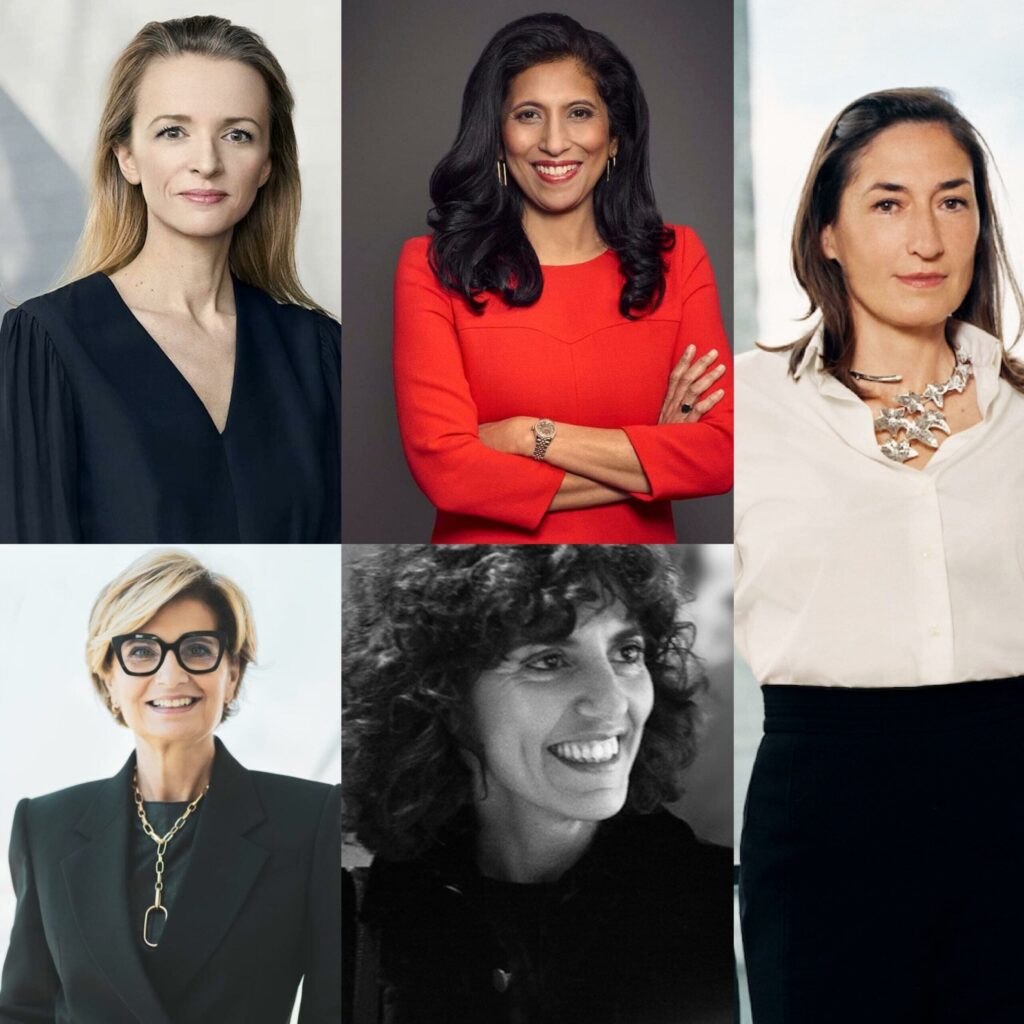This International Women’s Day, we profile 5 powerful women CEOs in luxury on their impact and leadership philosophy
Women account for just 74 of the CEOs of the US’ 500 highest-grossing companies, or 15 per cent, while globally, that figure plummets to 4.8 per cent among the Global 500. But the small cohort represents some of the most progressive evolution in corporate leadership today, and their increased visibility—owing to their modest number—means these leaders end up standing for something much bigger than themselves. Here’s an introduction to five of the most powerful women CEOs in luxury and how they wield their influence.
Delphine Arnault, Dior
Earlier this year, LVMH owner Bernard Arnault named his eldest child the head of Christian Dior. This follows her 2019 entry into the LVMH executive committee, a move that made the younger Arnault the youngest person to do so.
But to Arnault, “good leadership is genderless,” she said last year in an interview with her alma mater, EDHEC Business School. “Great leaders share a lot of the same traits: they have a strong strategic vision, great optimism, they are open-minded, forward-thinking, empathetic to their collaborators’ and customers’ needs. Gendering leadership is sterile. A better conversation is the push for gender equality in top management. And more broadly, for better diversity and representation in our teams. Not only is diversity a tremendous source of complementary skills and wealth, it’s also a strong driver of creativity, innovation and performance.”
Sabina Belli, Pomellato
CEO of Pomellato Group since 2015, Sabina Belli is Pomellato’s first woman CEO. She has made pushing for women’s rights through corporate initiatives one of the hallmarks of her tenure so far. Calling herself a pragmatic person in an exclusive interview with GRAZIA Singapore, she believes in the power of “doers.” “[Doers] transform every desire, action and responsibility into a concrete act. In the field of business, in a team, being a doer means being a trusted person,” she says.
“This is linked to teamwork: great goals are always achieved with allies. I’ve learnt through my career that there is a different way of leadership and management. My approach has always been inclusive, because working together allows us to enrich our points of view and to face challenges in a positive way. This happens at work and also in a family.”
Hélène Poulit-Duquesne, Boucheron
Appointed CEO of the storied jewellery maison in 2015, Poulit-Duquesne makes up a formidable all-women leadership duo together with Boucheron’s Creative Director, Claire Choisne.
“First, it is crucial to have a vision. Then, energy and passion to inspire and engage the teams. Finally, kindness is important: being respectful, humble, empathetic, and friendly to everyone, no matter who they are. Kindness is not synonymous with weakness,” said Poulit-Duquesne in a past interview. “What I also believe is that great leaders create a safety circle around their team members. A person who feels safe can express and be sure to be accepted as she or he will be happy at work, be engaged, and will deliver.”
- READ MORE: Spring 2023 High Jewellery Collection
Leena Nair, Chanel
The 30-year veteran of Unilever was tapped to lead Chanel in December 2021, making her the youngest CEO of the maison and proving that executives from consumer goods backgrounds aren’t in any way disadvantaged to helm luxury houses. The human resources expert also hosts a podcast series interviewing luminaries from various fields.
She told ETPrime, under the Economic Times of India, about how she picked up a precious lesson in leadership through being stuck inside the Taj Hotel during the 2008 Mumbai terror attack. “I remember the courage of the girl who was leading the staff and the guests. She showed so much situational leadership, trying to find places for us to hide, giving us water through the night, trying to give us whatever information she could find,” she recounted. “She was so calm and composed. I learned that day that leadership is situational: it doesn’t matter if you are senior or junior, what matters is stepping up.”
Francesca Bellettini, Saint Laurent
The former Goldman Sachs investment banker made pit stops at a number of Kering Group companies such as Gucci and Bottega Veneta before landing at Saint Laurent, which she has been leading since 2013. Bellettini subscribes to a collaborative style of leadership, which comes through in her partnership with Saint Laurent’s artistic director, Anthony Vaccarello, whom she called her “adventure partner” in an interview with FashionNetwork.com.
“Vaccarello is the first person I’ll call if I have to make a big decision in the company, regardless of whether it’s on the business side or not. Our relationship is 100 per cent based on trust and respect. I’m not the type of CEO who would control, either directly or indirectly, Vaccarello’s work. That would spark fear and that’s one of the biggest issues in fashion,” she said.
“I think it’s all too easy to criticise anyone who’s different. I believe in freedom of speech, I love differentiation and hate homologation. I’m not looking for what is politically correct. Puritanism goes hand in hand with standardisation and I think we have to stay away from it.”
This article first appeared on GRAZIA Singapore.
For more reads on Leaders, click here.
